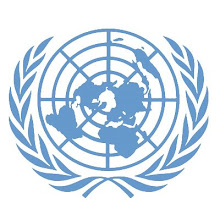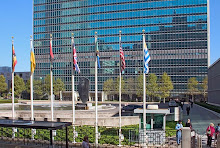In 1985, this theme was even taken up by America’s Congress which declared that:
"Voting rights (in the UN) should be proportionate to the contribution of each member state to the budget of the UN and its specialized agencies."
It is clear that America did not want to contribute toward the UN budget. America wanted to invest. In case the United Nations does not let the U.S.A make their way, they refuse to follow the United Nation’s guidelines. This how far fetched the ever growing financial tentacles of the US of A are.
In the UN, most work is done by the Security Council, which consists of 15 nations, five of which are permanent members. The USA is a permanent member. The other ten countries are selected and are on the council for a period of two years. In a routine matter, a minimum of nine approvals is required for the matter to be passed. In a more important matter, however, all five permanent members must approve for the matter to be passed. Therefore, one of the major countries can veto anything they think doesn't benefit them. They believe that, as they facilitate green for the UN, they should get the most say out of all the countries. Of course, third-world countries would not be able to pay anywhere near to the sum that say, France or Britain pays. However, the permanent five expect the UN to benefit them although they are already well off, so how can any good be done? That is precisely the reason why the third world countries continue to remain third world countries.
In 2005, two weeks prior to when world leaders were due in New York to talk about global poverty and United Nations reform, the United States was trying to renege on commitments to fight poverty. If this wasn't so gut-wrenchingly important to the one billion people in Africa, Latin America and Asia who subsist on barely anything, the U.S. proposal, presented by America's new UN ambassador, John Bolton, would be almost comical.
The leaders of more than 170 countries were to show up to sign an agreement, under negotiation for six months, to bolster the UN Millennium Declaration, which was drafted with great fanfare in 2000. Chief among the Millennium Declaration's goals was for developed countries, like the United States, Britain and France, to work toward giving 0.7 percent of their national incomes for development aid to poor countries by 2015. When America woke up to the financial obligations, President George W. Bush had a change of heart. The draft document that Bolton shared with other diplomats calls for striking almost all mentions of the Millennium Development Goals, which also call for poor countries to adopt good governance.
American officials at the United Nations also complain that the section on poverty is too long. And the United States wants to erase parts of the text that would ask countries to "achieve the target of 0.7 percent of gross national product for official development assistance by no later than 2015."
That’s the power the USA exercises over the UN. The expectations clearly demonstrate the depth to which they hold access. Of course, staunch right conservationists would argue, and even justify America’s decision, since for most extremes, financial growth is no more than a sample size of 1.
Iraq was clearly an Albatross around its neck. The UN also had to hang its head in shame in the dealings of Iraq, since it did not have much to boast about it being an uninfluenced decision.
When the US presented a formal draft to the Security Council, that stated military action against Iraq, the world shifted its eyes to the other permanent members. France, China and Russia were under an acute pressure. "You're either with us or against us," was the message that Washington sent out to the other permanent members.
With this delicate international dynamics, the US, after several weeks, decided to abate the draft (apparently), and this included tough weapons inspections with a threat of military force, meant as backup.
The US submitted its draft to negotiation with all 15 council nations to show its reluctant allies, France and Russia, that it had sufficient support for the resolution among the 10 non-permanent members.
After what happened with Iraq, its quite obvious as to what happened next. These are some of the luxurious stems of control that the US has. The UN and its bodies function almost independently. It’s a ridiculous method of functioning, considering the magnitude of implications a body such as the UN can have on the world.
Effectively, the US is the UN, even though several people would like to believe that the UN is a peacekeeping body. And that it is a boon to the world. They fail to accept that has an organizational flaw that can lead to its downfall – Lack of finance and transparency, which countries like the USA take full advantage of. The whole multilayered structure of the UN makes it susceptible to such global powers. We want to build uber optimistic bubbles of hope around us and ignore reality because it does not fit into the idealistic mould of thoughts. While we do this, sitting in a country that is so politically instable, America is already executing its blue print of how to take over the world.


2 comments:
Watch out !
Even as press, you can't afford to be all that harsh.
(There is scope for a RoI against the entire Press Corps from a house; you know that, don't you?)
But on the personal front, I agree fully.
Prithvi - is the UN still relevant? Careful now - its your uncle here..;-)
Post a Comment